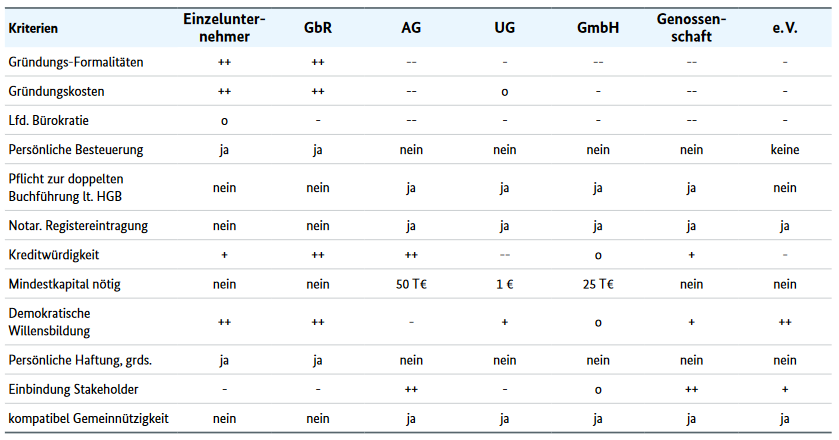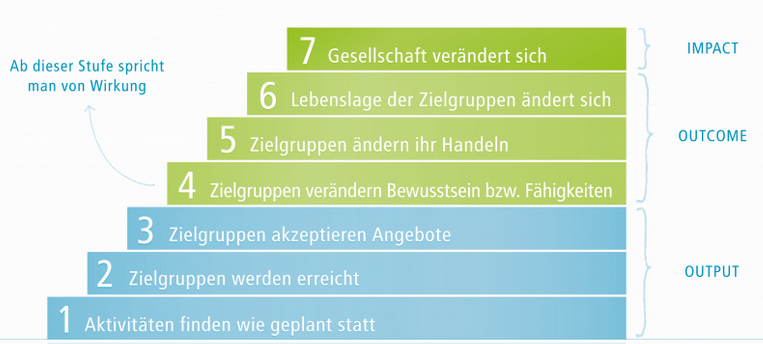After a couple of technical articles in our blog about digitalization, we would now like to return to a more general topic that is also relevant for us at ViOffice: social entrepreneurship.
What is social entrepreneurship, how do you start a social enterprise and what does it have to do with ViOffice? We would like to clarify these and other questions for you below.
What is Social Entrepreneurship?

To understand what social entrepreneurship specifically means, Wikipedia offers a pretty accurate definition:
“Social entrepreneurship is understood as an entrepreneurial activity that wants to work innovatively, pragmatically and in the long term for solutions of social problems or more generally: for a substantial, positive change of a society (for so-called meta-economic overall objectives). […] The idea of profit is in the background for social entrepreneurs, which is why many of these entrepreneurs are organized in non-profit organizations, lead or support other legal forms.”
https://de.wikipedia.org/wiki/Sozialunternehmertum (Translated from German Wikipedia)
A similar concept is associated with the term Corporate Social Responsibility (CSR). CSR describes the voluntary contribution of private economic actors to sustainable, societal or social goals beyond government regulation.
The crucial difference between social entrepreneurship and CSR is that social enterprises focus on social benefits, while CSR encompasses “classically” structured companies that wish to voluntarily assume social responsibility in society with their profits. However, the boundaries between social entrepreneurship and corporate social responsibility are often blurred in reality. [1]
How is a Social Enterprise established?
In the practical guide “Soziales Unternehmertum” (Social Entrepreneurship) of the German Federal Ministry of Economy and Climate Protection (BMWK), the path to founding a social enterprise is described in quite some detail, broken down into different phases. These steps, especially step 5 “Formation”, might differ in other countries. [1]
1. Inspiration and Motivation
Unlike most common business start-ups, the service to the community is the focus of the start-up. To this end, a higher goal or intrinsic motivation of one’s own is first necessary. What (positive) change is the startup specifically intended to work toward? How can founding a company help to achieve this goal? Social entrepreneurs have usually addressed these and other questions long before founding the company out of their own interest.
In doing so, you should also personally ask yourself what type of entrepreneur you are. Should the company basically achieve high profits in order to support one’s own goal or is the goal also clearly in the focus of the entrepreneurial activity and the intention to make a profit (if this exists at all) is clearly subordinate to this. Although the boundaries can be fluid here, the question should be answered (roughly) in advance, since different forms of formation can be considered later (possibly also the formation of an association without any business interest).
2. Develop Ideas
Once one’s own goal has been identified and the motivation is clear, existing problem-solving ideas should be analyzed. Are there already successful approaches that address your own social goal and to what extent can/should these approaches be changed? Which actors are actually involved and how can I contribute myself as an actor?
3. Develop a Business Model
A business model must be developed around the ideas that have been developed, which answers various questions and can create added value for society. First, the idea results in the company’s own offering in the form of a product or service. The second aspect is central here: Who does the company want to reach with this product or service, and who is the customer base (target group)? For social enterprises in particular, there is also the question of the value chain, i.e. how is one’s own product manufactured and how can social added value be created in this step. Possible examples are whether the manufacturing process is particularly resource-friendly or how all actors involved in the service or the production of the product are involved appropriately and fairly.
4. Market Testing
Before a company is founded, there is often a phase of market testing. In this phase, you present your product, the business model and the motivating idea behind it to potential competitors or customers (idea pitch). Although the target group has probably already been identified in theory during the development of the business model, the question now arises of how to approach the groups and convince them. Apart from purely business considerations, in the case of social enterprises, the company’s own story with the overarching, social goal must become particularly clear. In order to present the idea and the product for the first time, start-up competitions, among other things, are a good way to do this. In addition to the attention that is generated, you also receive initial reactions and valuable feedback.
5. Formation
Now that a certain degree of market maturity is in place, it is time to officially establish the social enterprise. In the process, business aspects must be taken into account as well as social and/or ecological ones. This consideration is essential for determining the legal form of the social enterprise. There are partnerships and limited companies as well as cooperatives and registered associations. While especially the corporations seem to focus on the commercial aspect, it should be taken into account that under certain circumstances a non-profit status can be proven and applied for. The choice of legal form has its own tax, bureaucratic and financial consequences, which should be carefully considered. In addition, we would like to point out that a legal form does not have to be retained for all time, but that later changes are quite possible.

Apart from the legal form, the start-up financing must also be clarified in order to not only bear possible production costs, but also to finance one’s own livelihood if one is financially dependent on the revenues. Especially for social enterprises, there are public funding programs in this regard. Crowdfunding campaigns are also an option. Often there are supporters for charitable purposes who believe in the idea not only for financial but also for social reasons.
Provided that all these questions have been clarified, nothing more stands in the way of market entry. Certainly, further ambiguities will become apparent, such as the organization of internal processes, the determination of final prices or the necessity of important insurance. However, normally these points can be easily solved and can be readjusted afterwards. As a rule, local chambers of industry and commerce or start-up offices offer competent consulting services for this purpose.
How do you Measure the Success of a Social Enterprise?
Unlike traditional commercial enterprises, the success of social enterprises is measured primarily in terms of their social impact rather than purely financial benefit. If a non-profit legal form has been chosen, proof of the social impact of the company’s activities is even mandatory. The success of a social enterprise can be evaluated on the basis of an assessment.
The influence of a social enterprise can be divided into output, outcome and impact. These categories in turn contain individual sub-items, creating a tiered or pyramid shape. Let’s look at the individual levels from the bottom up:

First, an output is created in the sense that the activities take place according to plan, i.e. the product or service is on the market, the foundation has been completed and the actual work has been actively started. In the course of this work, the selected target groups are addressed and the own offer is accepted by the target group.
At best, the output leads to the desired effect on the addressed target group. Thus, an is created from the pure output. The outcome is again divided into 3 stages. The effect leads to a change in the awareness of the target group, whereby a part of the target group adapts and changes their actions. A changed awareness and adapted actions can lead to an actual change in the living situation of the target group in the further course. When this outcome has a social influence, it is called a social, economic or ecological impact. This impact does not necessarily have to affect society as a whole, but can also be limited to a specific section of society. [2,3]
It is important to note here that, depending on the legal form, not only social success but also financial success can and must be considered.
How does the Issue affect Us?

As already described in our blog entry titled “Corporate Social Responsibility” shortly after our foundation, we see ViOffice as a project that is oriented towards sustainable, ethical and socially just future viability. This firm principle has not changed until today.
Environment and Sustainability
We rely on sustainable energy sources for our digital infrastructure, because the software and IT sector in particular is a driving factor in the rising energy demand of the global North. Our servers have been powered exclusively by renewable energies since our founding. We have explicitly chosen data centers and server hardware that have been tested and certified to be highly energy efficient and that are powered exclusively by electricity from wind and hydroelectric power or solar energy. We also pay attention to efficient server utilization in order to save costs and make optimal use of energy. Read more about this in our blog post “Green Internet“.
Open Source, Data Protection and Privacy
Our services are 100% based on Free, Open Source Software (FOSS). Besides practical aspects, we try to minimize our own and our customers’ dependency on global corporations and digital monopolies. You can also find detailed information about the social impact of digital monopolies in our blog “Platform Economy & Digital Monopolies“. Furthermore, open source software is transparent and thus guarantees that all data protection and privacy promises are fulfilled by us. We always adhere to the high legal standards of the General Data Protection Regulation (GDPR) and in many cases even go beyond them.
Social Participation and Solidarity
Finally, we offer simple and useful tools at reasonable prices, which are primarily measured by our costs and realistic, sustainable future orientation. Our pricing model is not aimed at dominating entire market segments, nor at ironclad profit optimization. We strive for social balance and participation through solidarity pricing, without compromising on functionality. For this reason, we offer, among other things, discounted conditions for non-profit associations, NGOs and educational institutions. For pupils and students we have even established a pay-what-you-want principle for our cloud solution, i.e. the price can be freely chosen by the users themselves – even 0,- € are possible!
Whether we ourselves are defined as a social enterprise or a company with a strong focus on corporate social responsibility is rather secondary for us. It is true that we have to be entrepreneurially active to a certain extent in order to continue to make a positive contribution. However, it is important to us that the guiding principle of a digital, sustainable and social future in Germany and Europe is not subordinated to business logic. With this article, we not only want to clarify our point of view, but also encourage you to become active yourself in order to make a social contribution – whether in the context of a social enterprise, in an association or in another way.
Sources
[1] Bundesministerium für Wirtschaft und Klimaschutz (BMWK, 2018): Praxisleitfaden Soziales Unternehmertum. Online unter https://www.bmwk.de/Redaktion/DE/Publikationen/Mittelstand/praxisleitfaden-soziales-unternehmertum.html.
[2] PHINEO gemeinnützige AG (2021): Was ist Wirkung. Online unter: https://www.wirkung-lernen.de/wirkung-planen/was-ist-wirkung/.
[3] Hackenberg, Helga/Empter, Stefan (2011): Social Entrepreneurship – Social Business: Für die Gesellschaft unternehmen. Wiesbaden: VS Verlag für Sozialwissenschaften.
Pascal founded ViOffice together with Jan in the fall of 2020. He mainly takes care of marketing, finance and sales. After his degrees in political science, economics and applied statistics, he continues to work in scientific research. With ViOffice, he wants to provide access to secure software from Europe for everyone and especially support non-profit associations in their digitalization.


